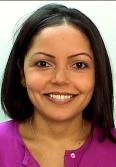 Children in a classroom raising their hands to answer a question
Children in a classroom raising their hands to answer a question
How it started
As late as 2019, the Democratic Republic of Congo (DRC) remained one of the few countries in the world where public primary education was not free. Fees were initially introduced in the 1980s to cover teacher salaries and school operating costs following a drastic reduction in public financing to education and repeated teacher strikes. Household financing was formalized gradually and paid for the education system in the 1990s, allowing it to function despite the breakdown of the Congolese state.
Like few other countries globally, the majority of DRC’s public primary schools are not managed by the state – religious networks run about 80% of public primary schools by formal agreement with the government. This model of partnership in the management of public education, coupled with high rates of families’ financial commitments, helps explain how DRC has managed to achieve a net primary enrollment rate of 78% despite having the world’s second-highest rate of extreme poverty, outperforming many other low-income and fragile countries.
Despite these achievements, DRC’s basic education system faces an enormous number of challenges. Extreme poverty and the government’s fiscal limitations mean that the system has been severely underfinanced. Total spending per primary student was estimated at only USD 50 in 2014, one quarter of the Sub-Saharan Africa average. Before the free schooling policy, a backlog of tens of thousands of teachers in public primary schools was waiting to be recognized by the government and incorporated onto the payroll. Not surprisingly, service delivery quality is quite low across all dimensions, including basic school infrastructure, the availability of textbooks, and the level of teacher knowledge.
Education realities within DRC also vary a lot – the country has a land mass the size of Western Europe, Africa’s third-largest population, and hundreds of ethnic groups. Reliance on household financing only intensifies inequalities, and fees have been the top barrier for children entering and staying in school. Primary and secondary net enrollment rates are nearly twice as high in Kinshasa, (the capital and province with the lowest poverty rates) as they are in some of the central provinces. Gender also matters – only 24% of rural girls who enter the school system manage to reach grade 12, compared to 69% of urban boys.
Weaknesses in system governance further undermined service delivery, by allowing school fees to become an extractive mechanism that diverts some of parents’ hard-earned contributions to fund administrative offices and other uses with little impact on students in schools.
After past, partially implemented attempts, the incoming administration made free primary schooling a flagship policy starting in September 2019. The policy is an ambitious investment in the country’s human capital, one that will cost well over USD 1 billion annually. The World Bank committed to supporting this policy, through its largest primary education operation in the world. The operation is a four-year, USD 800 million results-based financing, a first for the DRC, focused on education governance reforms and systems strengthening that will in the long run, contribute to the sustainability of free schooling.
How it’s going
The jury is still out on free schooling’s success and will be for a while. Policy implementation has not been without its challenges. For example, blatant instances of corruption have wasted millions of dollars that the system badly needs – a recent audit process by the President’s office, identified and prosecuted several high-profile cases.
But almost 2 years on, it is safe to say that the DRC remains committed to the policy, despite the COVID-19 pandemic and global economic downturn. The government has increased the share of education in its voted budget from 11.6% in 2017 to 21.8% in 2021 and carried out a national census exercise (supported by the Bank) to identify, screen, and incorporate qualified teachers onto the payroll.
And the policy is already having significant impacts. Rapid data collection exercises conducted by the Ministry of Education, as well as household and school director phone surveys carried out by the National Institute of Statistics and DRC Crisis Observatory, indicate widespread enrollment surges. At least 3 million additional children have enrolled in primary school across the country, and enrollments in secondary school have also increased. This is particularly notable given the pandemic’s impacts on the school calendar and families’ economic situations.
The government is also tackling several important elements of service delivery to improve student foundational learning. For example, the Ministry of Education has developed reading textbooks and teachers guides in four national languages for the early grades and is in the process of distributing them to all primary schools nationwide – a first for the country and a step in the right direction towards reducing learning poverty. Moving forward, the government will, with the support of the Bank operation, put in place merit-based recruitment of teachers and school directors, as well as develop and implement a formula-based school operating budget program, among other reforms.
All of the above is a testament that leadership and bold policy initiatives that make a tangible impact on human capital are possible in the DRC. It is also an important early signal that – despite the challenges – DRC can!



Join the Conversation